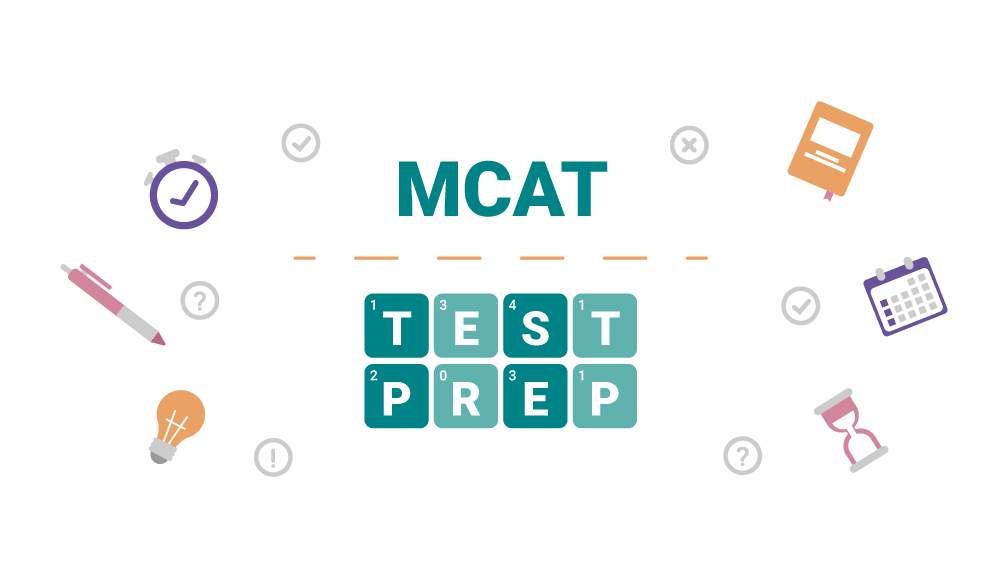There are currently over 2,986,5000 registered nurses in the US. That’s only one type of nurse, though. If you’re interested in pursuing a career in nursing, it helps to explore your options.
Here are 18 different types of nurses employed throughout the world. By exploring the common types of nurses, you can choose the best fit for your career!
As a nurse, you’ll care for the ill, injured, and disabled. You’ll help prevent disease by providing patients with the care they need.

Ready to learn more? Keep reading to discover the common types of nurses today!
Licensed Practical Nurse (LPN)
Licensed practical nurses work alongside registered nurses and physicians. These nurses help provide patients with basic care.
As an LPN, you’ll:
- Talk to patients about how they’re feeling
- Keep records regarding the patient’s health
- Monitor patient vital signs (temperature, blood pressure, etc.)
- Change or apply bandages, insert catheters, and clean wounds
- Feed, bathe, and/or dress patients
You can work in a nursing home, school, home, or hospital.
If you’re interested in the different types of nursing, you might want to consider becoming an LPN first. As an LPN, you’ll gain hands-on nursing experience before advancing your career.
Then, you can gain an associate (ASN) or bachelor’s (BSN) degree before pursuing other types of nursing.
As the senior population continues to grow, we’ve experienced an increasing need for LPNs. Specifically, we need LPNs for long-term care facilities, including:
- Hospice
- Rehabilitation centers
- Residential treatment centers
To become an LPN, you’ll need a Diploma in Practical Nursing (DPN). You’ll also need to pass the NCLEX-PN exam.
Registered Nurse (RN)
More registered nurse jobs will become available through 2022 than any other profession in the US. We’ll need about 11 million additional nurses to avoid a further shortage. Employment opportunities could grow 15% faster than any other occupation.
Registered nurses provide most of the nursing care in a range of healthcare facilities. Your responsibilities as an RN might include:
- Collaborating with doctors, advanced practice RNs, and other professionals
- Administering medication
- Operating and monitoring medical equipment
- Completing diagnostic exams
- Collecting lab samples
- Drawing blood and inserting IV drips
- Setting up and/or contributing to patient care plans
- Teaching patients and their families how to manage care after treatment
As an RN, you might choose to specialize in different types of medicine.
To become an RN, you’ll need a college degree. Consider gaining your Associate of Science in Nursing (ASN) or Bachelor of Science in Nursing (BSN). You’ll need to pass your NCLEX-RN exam as well.
BSN nurses are the most sought after. They can advance into leadership or management roles faster than ASN nurses.
Certified Registered Nurse Anesthetist (CRNA)
Certified registered nurse anesthetists assist with anesthesia during surgery. You’ll need to complete a degree from a graduate-level program. This type of nursing is ideal if you’re interested in surgery.
Clinical Nurse Specialist
Clinical nurse specialists are a type of APRN. You’ll work with other nurses to improve the quality of care your patients receive. You might educate nursing staff or take on a leadership role.
About 59% of all healthcare professionals are nurses. In fact, nursing is the largest healthcare sector. By exploring these common types of nurses, you can help patients by providing the care they need.
Geriatric Nursing
Do you want to work with senior citizens? Consider geriatric nursing as you explore these common types of nursing. As a geriatric nurse, you’ll treat older patients by caring for their ailment, illness, or injury.
You can also help by anticipating future care needs for your patients.
Mental Health Nurse
Mental health nurses help diagnose and treat patients with psychological disorders. You might primarily offer counseling services.
Are you interested in developing meaningful relationships with patients? Consider becoming a mental health nurse. You’ll provide patients with an all-encompassing level of care.
Emergency Room Nurse
How do you react in an emergency situation? If you’re good at thinking on your feet, consider becoming an emergency room nurse.
As an ER nurse, you’ll help provide urgent care for patients suffering from life-threatening illnesses and injuries. You’ll need to work alongside first responders and ER staff.
To succeed in this field, you’ll need to become a critical thinker. You’ll need strong communication skills, too. Working alongside your team members is crucial.
You might work in a range of settings, including:
- Level 1 trauma centers
- Rural hospitals
- Clinics
You can also practice a range of specialties, including pediatrics and trauma.
Emergency room nurses are RNs. You’ll need your ASN and possibly your BSN. Some hospitals require Trauma Nursing Core Course (TNCC) certification.
Perioperative Nurse (OR/Surgical Nurse)
As you explore the different types of nurses, consider becoming a surgical, OR, or med-surg nurse. These different types of nurses are also quick under pressure.
Perioperative nurses focus on pre- and postoperative care. You’ll need to set up the surgical room for upcoming operations. You’ll also manage tools during an operation and apply bandages afterward.
Medi-surgical nurses work on the surgical or medical floor of a hospital. To become a med-surg nurse, you’ll need strong organizational and time management skills. You’ll likely take care of multiple patients at the same time.
You’ll need strong communication skills as well. As a med-surg nurse, you’ll need to communicate with surgical staff, doctors, and other team members.
If you want to work in a fast-paced environment, this is the job for you!
Travel Nurse
Travel nurses are registered nurses who fill workforce gaps in healthcare organizations and hospitals. As a travel nurse, you might fill in for a sick nurse or on maternity leave. You might even travel to another country to help with natural disasters.
You’ll need both ASN and RN certifications to become a travel nurse, and a BSN is recommended.
If you want to travel the world and help patients, consider becoming a travel nurse.
Nurse-Midwife
Do you have an interest in women’s health, pregnancies, and childbirth? If these common types of nurses don’t suit your interests, consider becoming a nurse-midwife. To become a nurse-midwife, you’ll need your Associate’s Degree or Bachelor’s of Science Degree.
You’ll also need your RN.
As a nurse-midwife, you’ll attend to pregnant women by assisting with prenatal appointments. You’ll also help during the labor and delivery process. Some nurse-midwives continue caring for patients outside of the delivery room, too.
By becoming a nurse-midwife, you’ll provide your patients with a holistic approach to the care they need.
Nurse Practitioner
To become a nurse practitioner, you’ll need your Master’s Degree or Doctor of Nursing Practice Degree (DNP). These nurses work in hospitals and doctor’s offices.
You might need a specific certification depending on your care specialty, too.
Nurse practitioners are primary and specialty care providers. They deliver advanced nursing services. These nurses also:
- Complete physical examinations
- Order testing
- Prescribe medications
Do you want to advance your nursing career? Consider becoming a nurse practitioner. You’ll provide more in-depth care that’s similar to a doctor’s care.
Meanwhile, you’ll have a higher return on investment, since the cost of earning your degree is cheaper.
Public Health Nurse
Are you interested in helping large communities of people (rather than treating patients one-on-one)? Consider becoming a public health nurse. Public health nurses teach communities about health concerns.
You can educate patients, help them discover different treatment options, and teach prevention. You’ll also assist patients with medical care.
Nursing Administrator
To become a nursing administrator, you’ll need your Bachelor’s of Science Degree and Registered Nurse License. Administrators are similar to nursing managers. You’ll oversee entire units of nursing teams to ensure everything runs smoothly.
Pediatric Nurse
As you explore these different types of nurses, consider your interests. Do you want to help children and teenagers? Consider becoming a pediatric nurse.
Pediatric nurses complete physical exams. They also diagnose illnesses and help doctors develop treatment plans.
Oncology Nurse
Do you have an interest in cancer diagnoses and treatment? Consider becoming an oncology nurse. As an oncology nurse, you’ll help with early detection and symptom management.
You might consider working for a specialty medical center, ambulatory center, or hospital.
To become an oncology nurse, you’ll need your ASN. You’ll likely need your RN and Oncology Certified Nurse certification, too.
Orthopedic Nurse
Do you have an interest in musculoskeletal issues and diseases? These conditions can include:
- Osteoporosis
- Joint replacements
- Fractured bones
- Arthritis
As an orthopedic nurse, you’ll help care for patients with physical issues. You can help cast broken bones and administer pain medications. You’ll also develop treatment plans to help patients manage their bone and muscular issues.
Nursing Manager
Nurse managers are supervisors. You’ll take on an administrative role and handle:
- Recruiting nurses
- Creating schedules
- Making budgetary decisions
You’ll manage a team of nurses and supervise patient care.
Nurse Educator
To become a nurse educator, you’ll need your Master’s Degree and RN. Nurse educators teach nursing patients before they start caring for patients. You’ll inspire individuals and shape the next generation!





